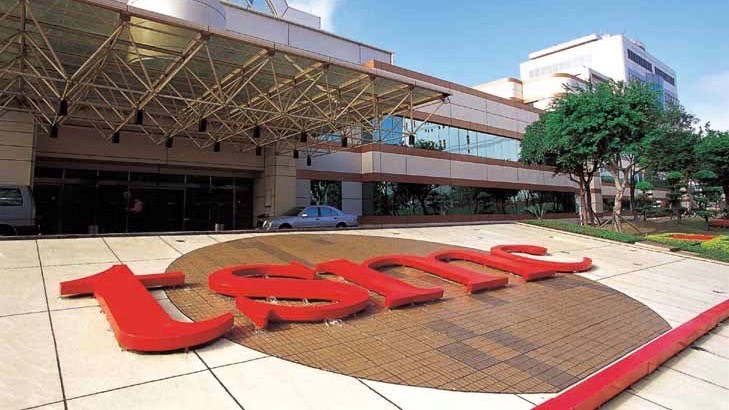
Source: Taiwan Semiconductor Manufacturing Co., Ltd.
- World’s largest contract chipmaker wants to hold onto its dominant position
- It had a stellar year in 2021 with sales up by more than 18%
- Now its committing even more funds to its capex
- More than $40 billion is set aside for investment this year alone
Taiwan Semiconductor Manufacturing Co. (TSMC), the world's largest contract chipmaker, has decided to increase its investments for this year and further grow its semiconductor manufacturing capacity, despite suggestions that the current global chip shortage should ease during the coming 12 months.
During the investor conference call to discuss its fourth quarter and full year 2021 financial results, the company, which counts Samsung as its main global rival, revealed plans to increase its capital expenditure (capex) for 2022 to between $40 billion and $44 billion.
If it hits those numbers, its annual investment in its chip manufacturing plants will have more than doubled in just two years, as its 2020 capex came in at NT507.2 billion ($18.4 billion). Last year its capex totalled NT839.2 billion ($30.4 billion).
For 2022, the plan is to spend about three quarters of the investment on additional advanced chip manufacturing processes for 2nm (nanonmeter), 3nm, 5nm and 7nm semiconductors. This suggests TSMC is confident of plenty of future demand, and/or confident of grabbing greater market share, otherwise it’s going to be left with a lot of spare capacity.
The news came as the company reported a 21.2% year-on-year increase in its fourth quarter revenues to NT$438.19 billion (US$15.9 billion) and a net profit of NT$166.23 billion ($6 billion). Its full year sales jumped by 18.5% to NT$1,587.4 billion (US$57.5 billion), while full year net profit increased by 15.2% to NT$596.5 billion (US$21.6 billion).
The company noted in its earnings press release that, in the final three months of 2021, “shipments of 5-nanometer accounted for 23% of total wafer revenue; 7-nanometer accounted for 27%. Advanced technologies, defined as 7-nanometer and more advanced technologies, accounted for 50% of total wafer revenue.”
Smartphone chips accounted for 44% of fourth quarter revenues, while high-performance computing (HPC) accounted for 37%, IoT for 9% and automotive for 4%.
First quarter 2022 sales are expected to be between $16.6 billion and $17.2 billion. Wendell Huang, VP and Chief Financial Officer, noted that for the first quarter of 2022 the company expects “continued recovery in the automotive segment, and a milder smartphone seasonality than in recent years,” as well as high-performance computing (HPC)-related demand.
All of this is good news for device and technology equipment manufacturers, which have been competing for a limited supply of chips for the past two years or so: The automotive industry has been hit particularly hard, but there have also been many tales of woe from the communications sector during 2021, with companies noting that sales would have been higher if only they’d been able to source the components they needed.
And there are plenty of signs that demand for components to be integrated into all manner of smart products (including vehicles) and IoT devices is only going to increase, while sales of smartphones continues to be strong.
TSMC is clearly setting itself up to retain its market-leading status – it currently commands more than half of the global semiconductor manufacturing market, with Samsung its closest rival with a market share of less than 20% – and ensure it has the means to deliver against any further surges in demand in the coming few years as well as the means to keep its rivals at arm’s length. It counts Apple, Broadcom, Qualcomm, Marvell, AMD, NVIDIA and Intel among its key customers.
Intel, of course, has already made it clear it wants a slice of the contract chip action: It wants to become a manufacturer of chips for third party customers, and has already launched its Intel Foundry Services (IFS) business and been advancing plans to build new facilities in North America and Europe in an effort to attract regional business for those manufacturing plants, but it’ll be a while before it builds up scale and gets those facilities up and running with advanced processes.
And, it’s worth noting, TSMC and Samsung are also building new foundries in the US, while GlobalFoundries (which has a global market share of about 7%) is already established in a number of countries, including the US and Germany.
Samsung, of course, has previously announced mammoth investment plans that include additional financial support for its chip foundries, so TSMC is not alone in digging in for the future. (See Samsung’s mammoth investment plans include 5G/6G.)
- Ray Le Maistre, Editorial Director, TelecomTV
Email Newsletters
Sign up to receive TelecomTV's top news and videos, plus exclusive subscriber-only content direct to your inbox.




